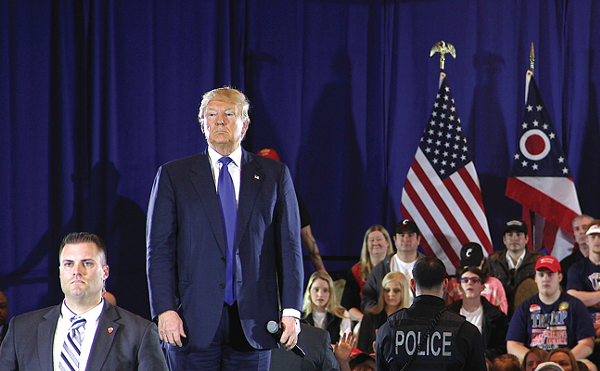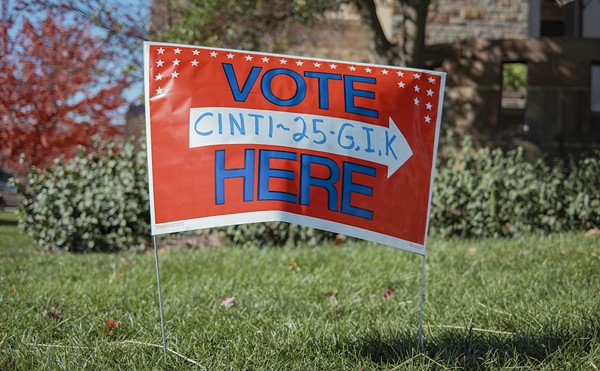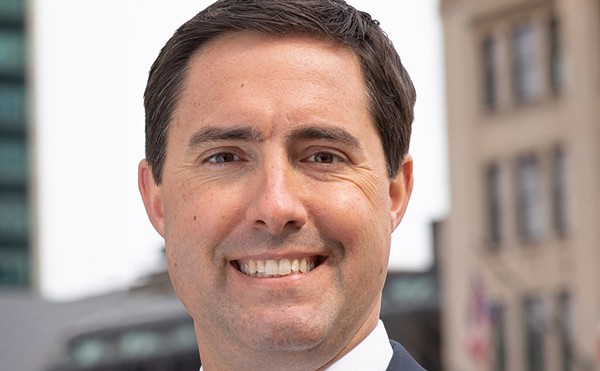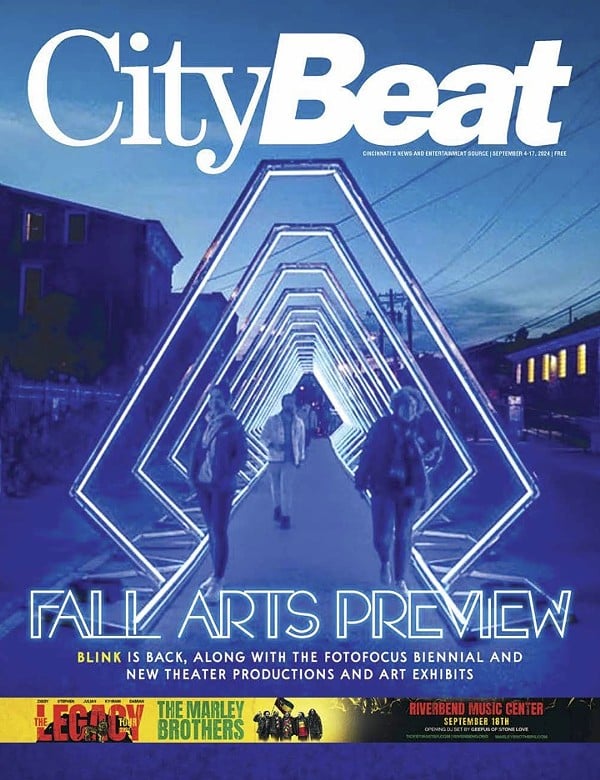|
The MTV cameraman keeps straightening John Cranley's tie, and Cranley keeps twisting himself up, waving his hands and almost shaking with enthusiasm.
The 26-year-old candidate for U.S. Rep. Steve Chabot's 1st Congressional District seat is off on a rant about how important public service is to his generation and why he's running for office. A crew from MTV News is shadowing him for several days, hoping to use footage in an upcoming Choose or Lose special on young candidates.
Cranley's rant makes for good TV, even with his tie askew — he's brash, articulate, passionate, convincing. But will it add up to a winning campaign against an entrenched incumbent?
Cranley thinks he can beat Chabot in November, even though experienced and popular Democrats like Roxanne Qualls and David Mann have failed in previous years. He's already gotten farther than most people thought he would.
On Saturday, Cranley is scheduled to submit a campaign fundraising report, which will show he's gathered $150,000 in contributions to date. The figure is important for several reasons, he says.
First, his fundraising ability will get him noticed by the Democratic National Committee (DNC), which likely will funnel money to viable congressional challengers around the country.
Former U.S. Rep. Tom Luken, who's serving as Cranley's campaign finance chairman, was told by DNC officials that Cranley had to raise at least $100,000 to get on "the list."
"The DNC didn't think I'd get it," he says. "But now it gives me a certain amount of credibility as a candidate, both nationally and locally."
More importantly, Cranley says, the funds were raised in just three months, with most of the money coming from individuals rather than political action committees (PACs).
Cranley declared his candidacy on Jan. 7, the final day to sign up for Ohio's March primary election. He says he was waiting for Cincinnati City Councilman Todd Portune to decide which office he'd seek; when Portune chose to run for Hamilton County Commissioner, Cranley stepped forward to take on Chabot.
About 72 percent of Cranley's funds raised to date have come from individuals, he says, while 28 percent are from PACs. Chabot's most recent financing report, filed Feb. 16, showed 51 percent of funds raised from PACs and 46 percent from individuals — for a total of $557,000.
The focus on fundraising has been exhausting, Cranley says, though necessary.
"It's been all dollars up to now," he says, shaking his head. "Now I know why the political system needs to be overhauled. This is crazy. I've barely been able to talk about any issues."
And talking about issues is what gets Cranley out of bed and going every morning. One of his favorite subjects — helping Cincinnati tap in to the "new economy" offered by the Internet — allows him to turn his biggest drawback, his youth and inexperience, into a positive.
"Over-the-Rhine has been going great with the new digital companies, and I think government should help facilitate the private sector in this case," Cranley says. "Chabot is old school, preferring to keep government out and do nothing."
Like many people, Cranley sees the digital revolution as an opportunity for Cincinnati to step up and become a major player in e-commerce and related business. With proper funding and other incentives, he feels, the federal government can enhance the region's natural advantages of low cost of living, an educated workforce and fairly decent Internet connections.
Cranley feels strongly about more traditional issues, too. He'd like to help reform the nation's health care system, which he says serves neither patients nor medical professionals well anymore. He thinks the federal government has a role in rebuilding the nation's public education system, particularly in pre-Kindergarten years (Head Start, school lunches) and college years (grants, scholarships).
His No. 1 issue, though, involves what Cranley calls "a new moral vision" in which "democracy can make a real difference in people's lives" by guaranteeing a living wage, decent health care and an education for those who work. Government can and should make life better for its citizens, he says — a stark contrast to the Republicans' push for less government involvement in daily life.
Cranley's call for a new moral vision is convincing, because he's tried to live the ideals in his own life. He comes from modest Westside roots — like Chabot — and says he learned the value of serving others from his Jesuit teachers at St. Xavier High School.
During his years at Harvard Law School, he clerked for the U.S. Attorney's Office in Cleveland researching immigration and health care fraud cases and represented indigent clients through Harvard's Legal Aid Bureau. He has a staff attorney position waiting for him at Taft, Stettinius and Hollister pending the outcome of the congressional race.
Whatever happens this fall, Cranley says, waving his hands again, it won't be his last political race.
"At the end of my life, I want to look back and say I served the least of those in society," he says. "I feel called to (enter politics). But I'm not running for exercise. I'm running to win." ©






